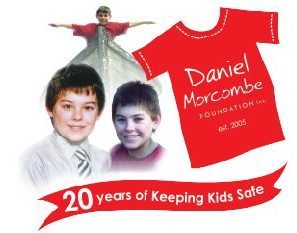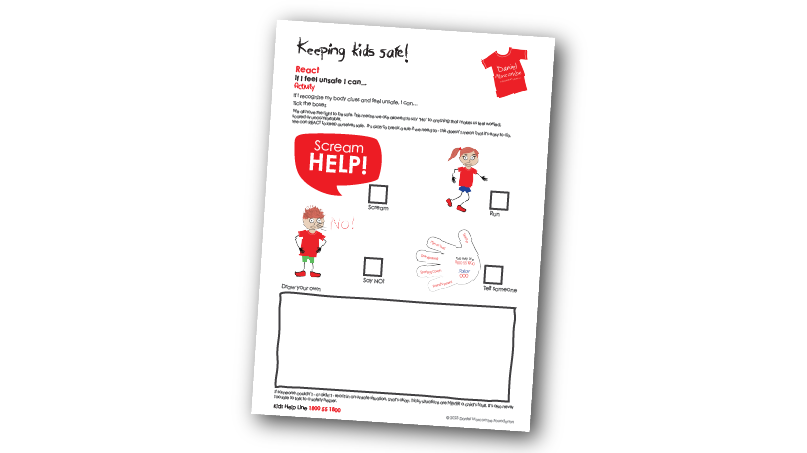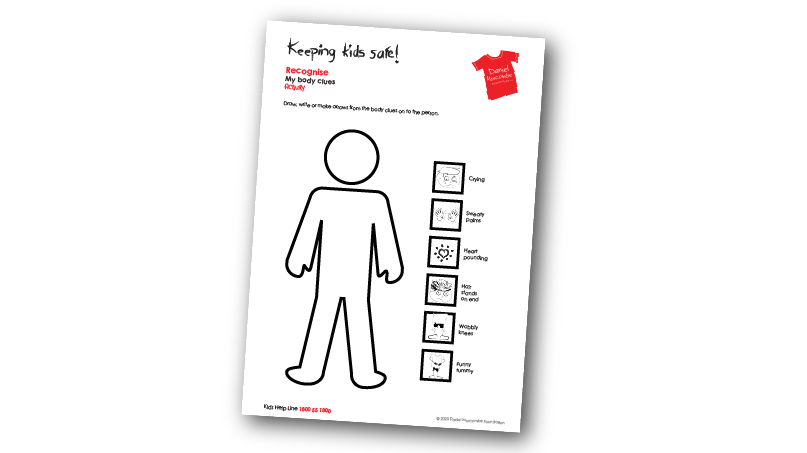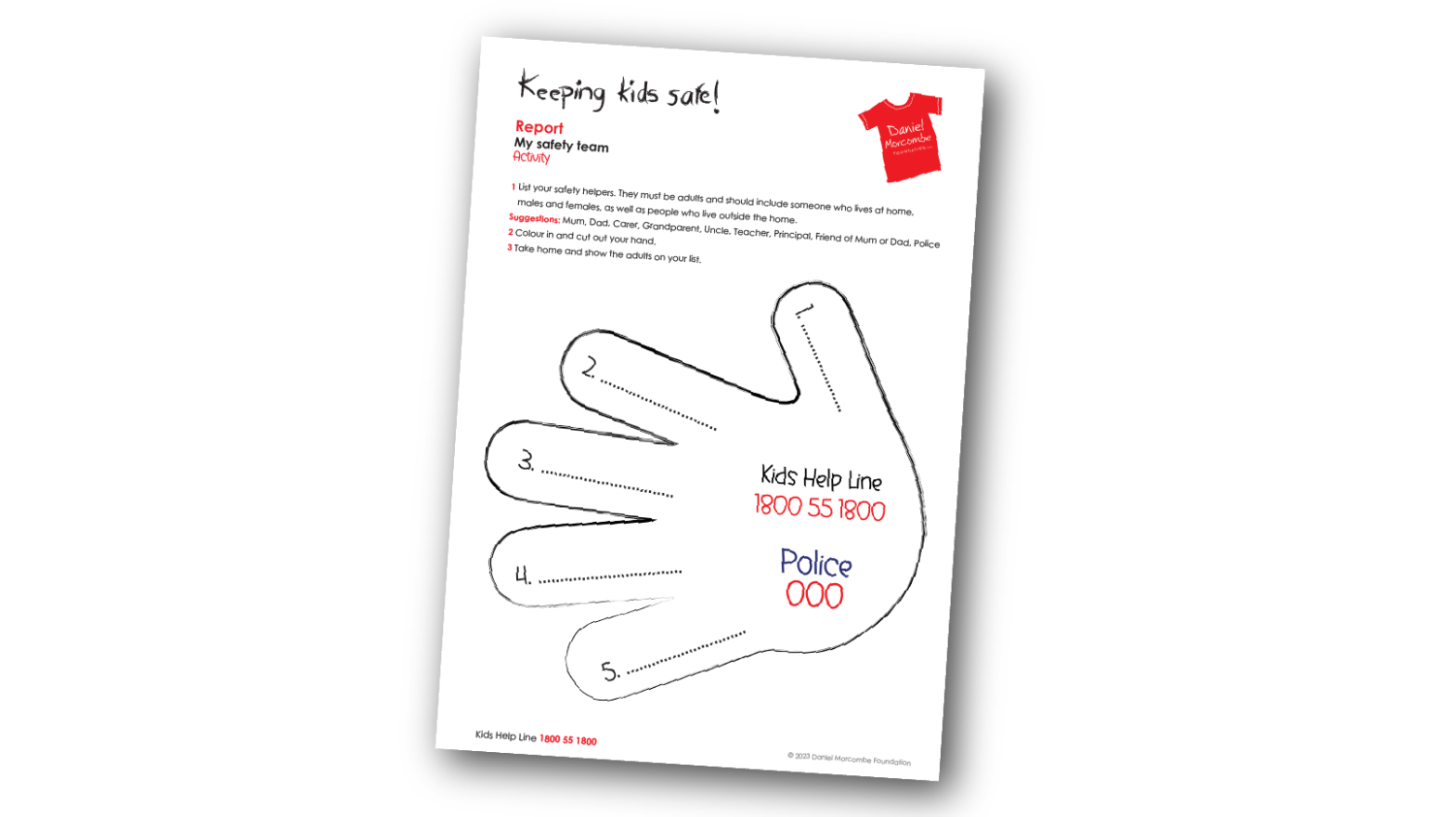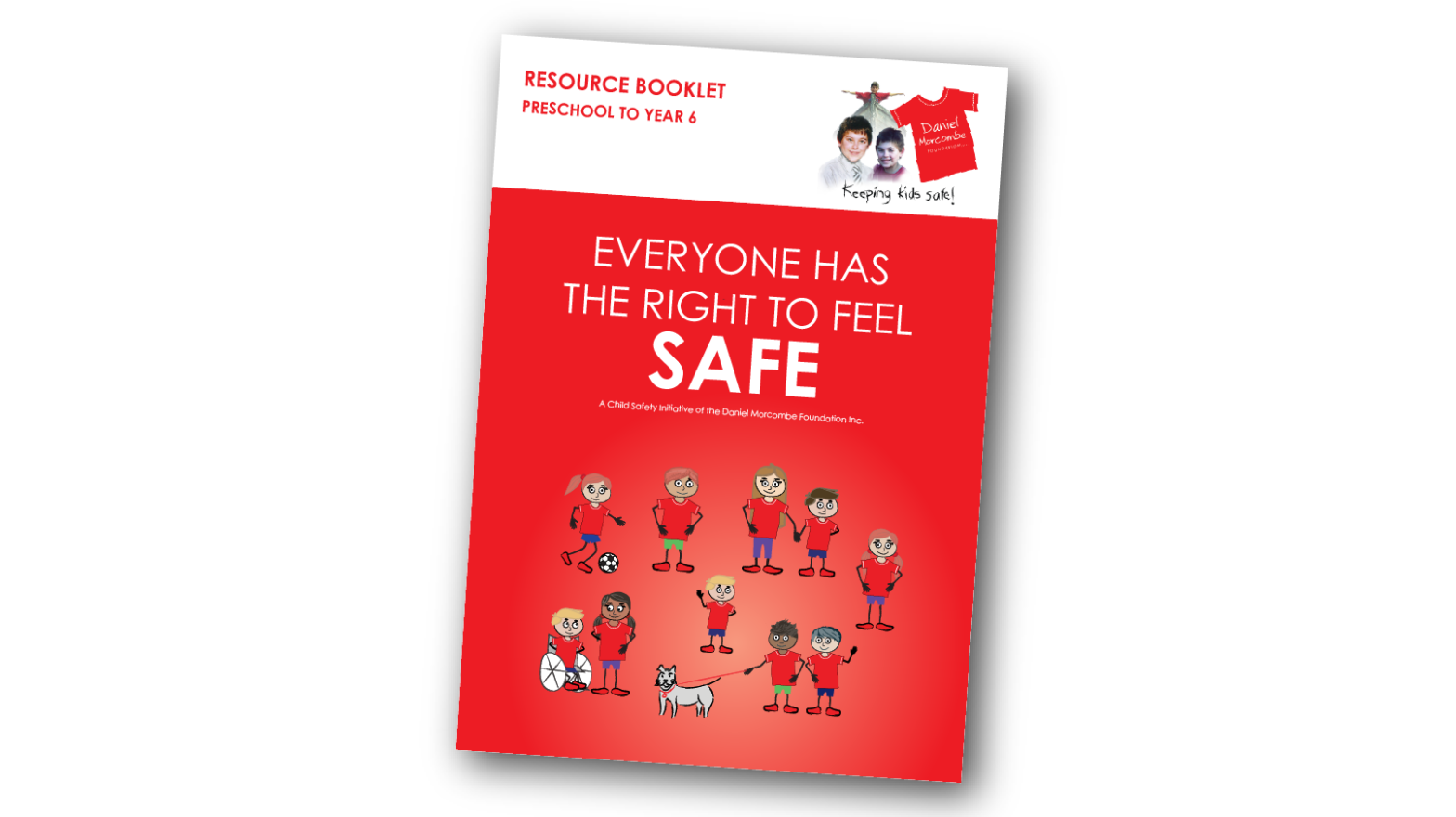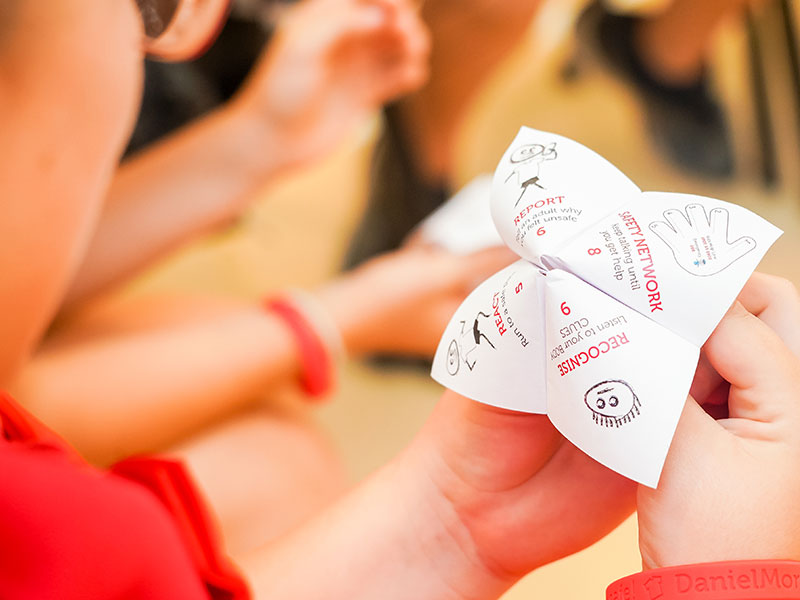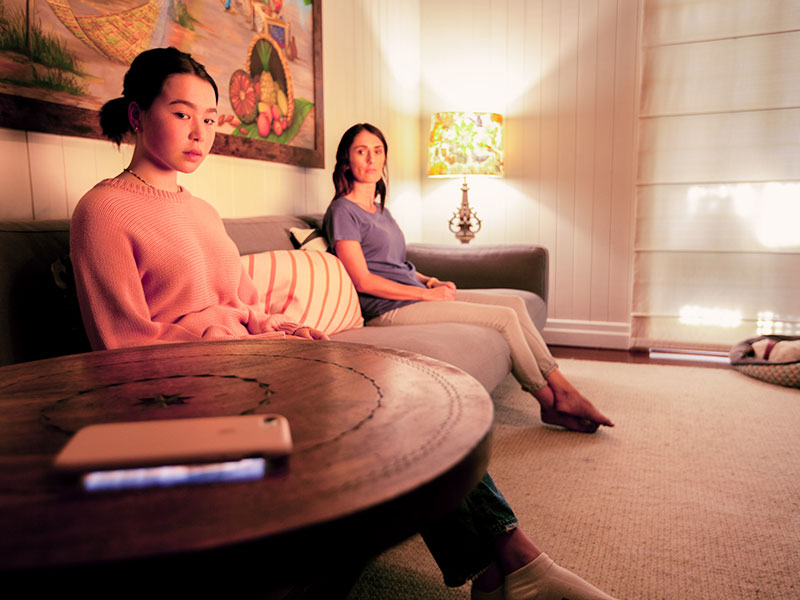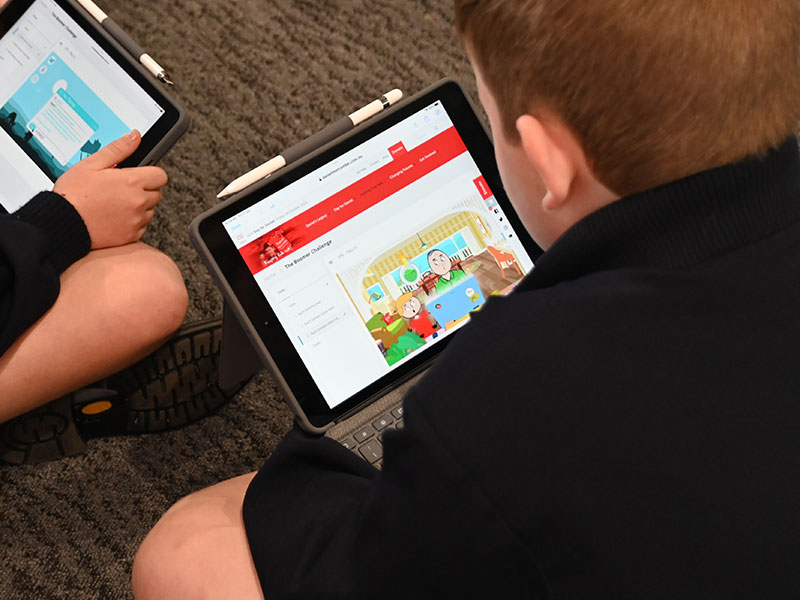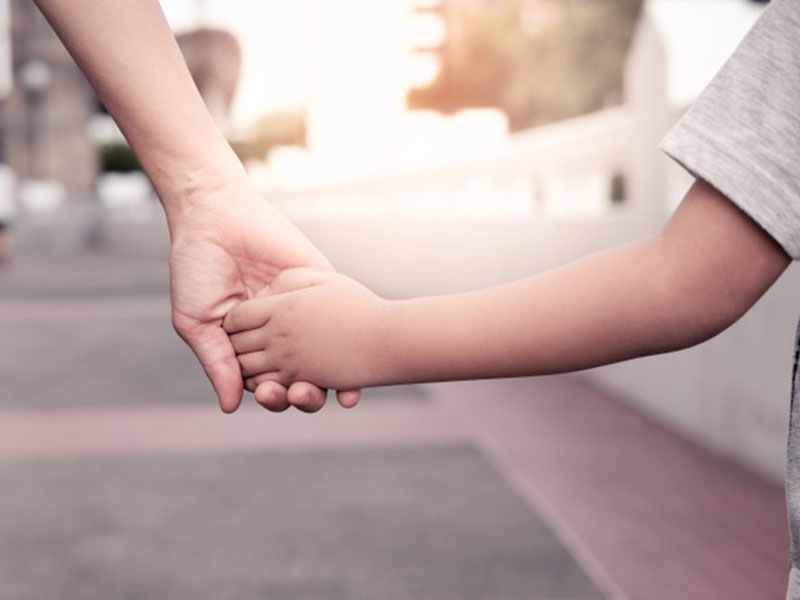
Keeping Kids Safe
Home »Keeping Kids Safe Resources
The Keeping Kids Safe Resources have been created in memory of Daniel Morcombe to help keep other children and young people safe. Every year new resources will be developed and released.
The resources are written for a diverse range of students from prep to senior years and the suite contains over 20 videos and activities. They are best used as part of a comprehensive whole school approach to personal safety education and are aligned with the following:
- Australian Curriculum, Assessment and Reporting Authority (ACARA)
- Daniel Morcombe Child Safety Curriculum
- Health Promoting Schools Framework
Teachers have access to teacher guides to support classroom delivery and parent/carer resources are available to encourage discussions about personal safety at home.
Access ALL Resources here
Interactive Resource / Resources for Parents and Carers / Resources for teachers
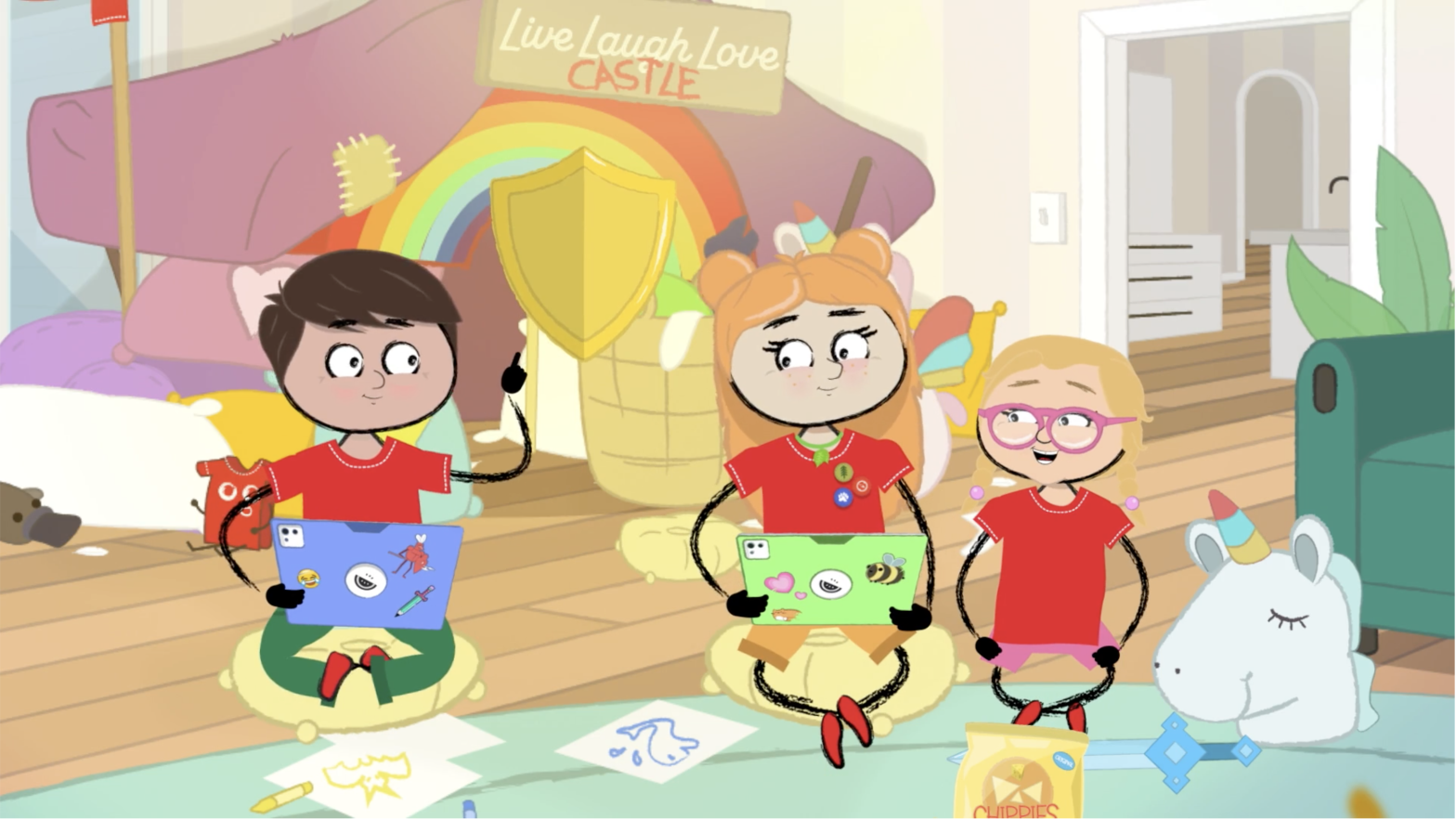
Challenges and Choices
videos / activities
2023 - Upper Primary
For children aged 8 to 12 with focus on the concepts of ‘my body, my choice’, and strategies children can then use when they need to seek, give or deny consent (permission).
lessons / activities
2023 - Early Years and Lower Primary
For children aged 4 to 7 with focus on the concepts of ‘my body, my choice’, and strategies children can then use when they need to seek, give or deny consent (permission).
videos / lessons / activities
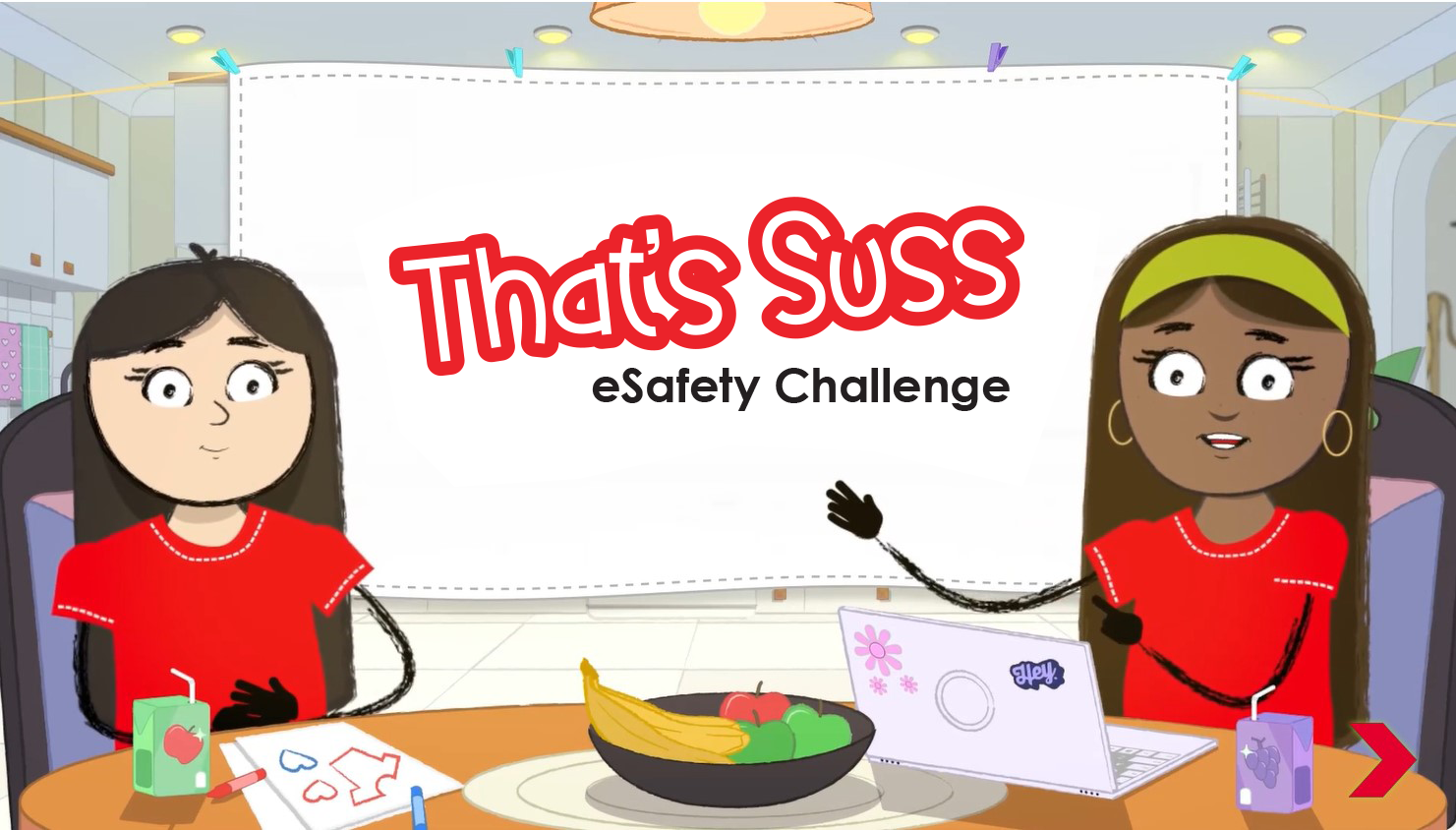
That's Suss: eSafety Challenge
factsheets / activities
2022 - Upper Primary
For children aged 8 to 12, the theme will focus on a focus on boundaries and body parts, using age-appropriate, evidence based personal safety education strategies.
factsheets / videos / activities
2022 - Early Years
For children aged 4 to 7, the theme will focus on a focus on boundaries and body parts, using age-appropriate, evidence based personal safety education strategies.
videos / activities
2021 – Early Years
For children aged 4 to 7 the lesson will focus on help seeking strategies.
lessons / activities
2021 - Upper Primary
The Upper primary lesson is aimed at children aged 8 to 12, the theme will focus on help seeking.
factsheets
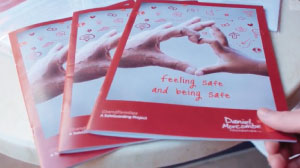
Feeling safe & being safe
When children and young people cannot live at home with their parents, Grandparents are often the ones who step in. This resource booklet is developed to help keep children and young people safe.
videos / activities
Making a safety network
videos / activities
React to feeling unsafe
Year 3 to 6
Learn how to recognise bullying behaviour and its impacts. Video length 1.00min.
videos / activities
Recognise body clues
Year 3 to 6
Our bodies gives us clues when we don’t feel safe. Video length 1.14min.
videos / activities
Recognise, React & Report
Year 3 to 6
Learn safety skills in Australia’s Biggest Child Safety Lesson 2017. Video length 18.34min.
videos
Getting lost at the shopping centre
Year 3 to 6
Video length 3.54min.
videos / activities
Australia’s Biggest Child Safety Lesson
Prep to Year 2
Bruce and Denise Morcombe will share strategies for students in year 3 to 6 to help promote safety. How to Recognise, React and Report unsafe situations. Video length 18.15min.
videos / activities
Australia’s Biggest Child Safety Lesson
Early Childhood to Year 2
The lesson has been developed using age appropriate evidence based personal safety education strategies for children between the ages of 3 to 8 years. Video length 24.45min.
videos
Bruce's Cat Tale
Prep to Year 2
Bruce shares a narrative of a cat being chased by a dog. He outlines the cat’s physical reaction – such as fur standing up and hissing. This tale provides a creative and one-step removed way to unpack body clues for children. Video length 7.02min.
videos
Obeying rules
Prep to Year 2
Video length 5.47min.
videos / activities
Making a safety network
Prep to Year 2
This video will teach you how to make a safety network of adults who will listen, believe and help you. Watch the video and complete the activity. Video length 1.22min.
videos / activities
Toilet block bullying
Prep to Year 2
Watch the two scenarios, one with boys and one with girls. Discuss in class. If you see or experience bullying, what can you do? Who can you talk to? Video length 1.44min.
videos / activities
Homework disaster
Prep to Year 2
What does it mean to get along with others? What would you do? Learn about respect and how to recognise feelings and emotions. Video length 1.11min.
videos / activities
Safety School Safety helpers
Early Childhood to Year 2
The lesson has been developed using age appropriate evidence based personal safety education strategies for children between the ages of 3 to 8 years. Video length 4.08min.
videos / activities
Safety School Body parts
Early Childhood to Year 2
The Safety School lesson is suitable for 3 to 8 year old children. Anthony and Julia teaches key personal safety concepts for early childhood in a fun and interactive way. Video length 4.10min.
videos / activities
Safety School Body clues
Early Childhood to Year 2
The lesson has been developed using age appropriate evidence based personal safety education strategies for children between the ages of 3 to 8 years. Video length 2.57min.
videos / activities
Safe internet use
Year 3 to 6
What it means to be safe online. Video length 3.48min.
videos / activities
Toilet block bullying
Year 3 to Year 6
Learn how to recognise bullying behaviour and its impacts. Video length 0.57min.
videos / activities
Footy fight
Year 3 to 6
Learn to understand the behaviour and feelings of others. Video length 2.32min.
videos
Safe mobile use
Year 7 to 9
Video length 6.57min.
videos
Adam Goodes talks bullying
Year 3 to 9
AFL legend Adam Goodes talks about his experience of being bullied and provides advice. Video length 1.08min.
videos / activities
Brooke's story
Year 7 to 9
Brooke shares her story about chatting online. Video length 2.36min.
videos / activities
Staying safe online
Year 7 to 9
Sharing information and chatting online. Video length 4.05min.
videos
What is Geotagging?
Year 7 to 9
Is your location recorded when you take a photo? Video length 1.07min.
videos / links
What happens when you call Kids Helpline?
Prep to Year 12
Who will you talk to? How long is the phone call? How often can I call? Will you tell someone what I say? Junior Journo Jasper chats to Jess from Kids Helpline and finds out more. Video length 4.03min.
videos / activities
iRelationship
Year 10 to 12
Helping young people to identify respectful relationships and positive relationship qualities. Video length 4min.
videos
Party crashers
Year 10 to 12
Video length 5.23min.
videos / activities
Safe internet use
factsheets / activities
Making a safety network
Special Education
Identify adults who will listen and keep you safe. Video length 3.00min.
videos / activities
React to feeling unsafe
videos / activities
Recognise body clues
Special Education
Your body will tell you when you don’t feel safe, what are your body clues? Video length 2.26min.
videos / activities
Being safe
Special Education
Our safe places can be at home, at school, with your friends or your safety helpers. Video length 2.28min.
videos
Rules for being safe
Special Education
Understand the rules for staying safe and types of touch that are not ok. Video length 2.38min.
videos
Cyber safety for parents
Parents and Carers
What are your children doing online? This video is a guide to talking points with your children to help keep them safe in an online environment.. Video length 16.45min.
videos
Create a family password
Parents and Carers
Does your family have a password? It is quick, easy and fun to make one. Use the password for people who are trusted to pick up the child from school or activities. Video length 2.22min.
videos
Online safety tips
Parents and Carers
Argos Taskforce Detective Inspector Jon Rouse delivers some important safety messages for children and young people. Learn about ways you can stay safe online. Video length 2.24min
videos
Staying safe online
Aboriginal and Torres Strait Islander
Video length 10.26min.
videos
Rules why do we have them
Aboriginal and Torres Strait Islander
Video length 5.32min.
videos
Safe vs Unsafe
Aboriginal and Torres Strait Islander
Video length 2.13 min
factsheets
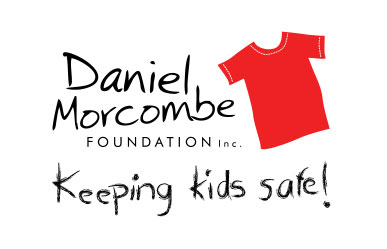
How to be a safety helper
A safety helper is an adult who forms part of a child or young person’s safety network. Safety helpers are responsible for making sure children feel safe and heard.
factsheets
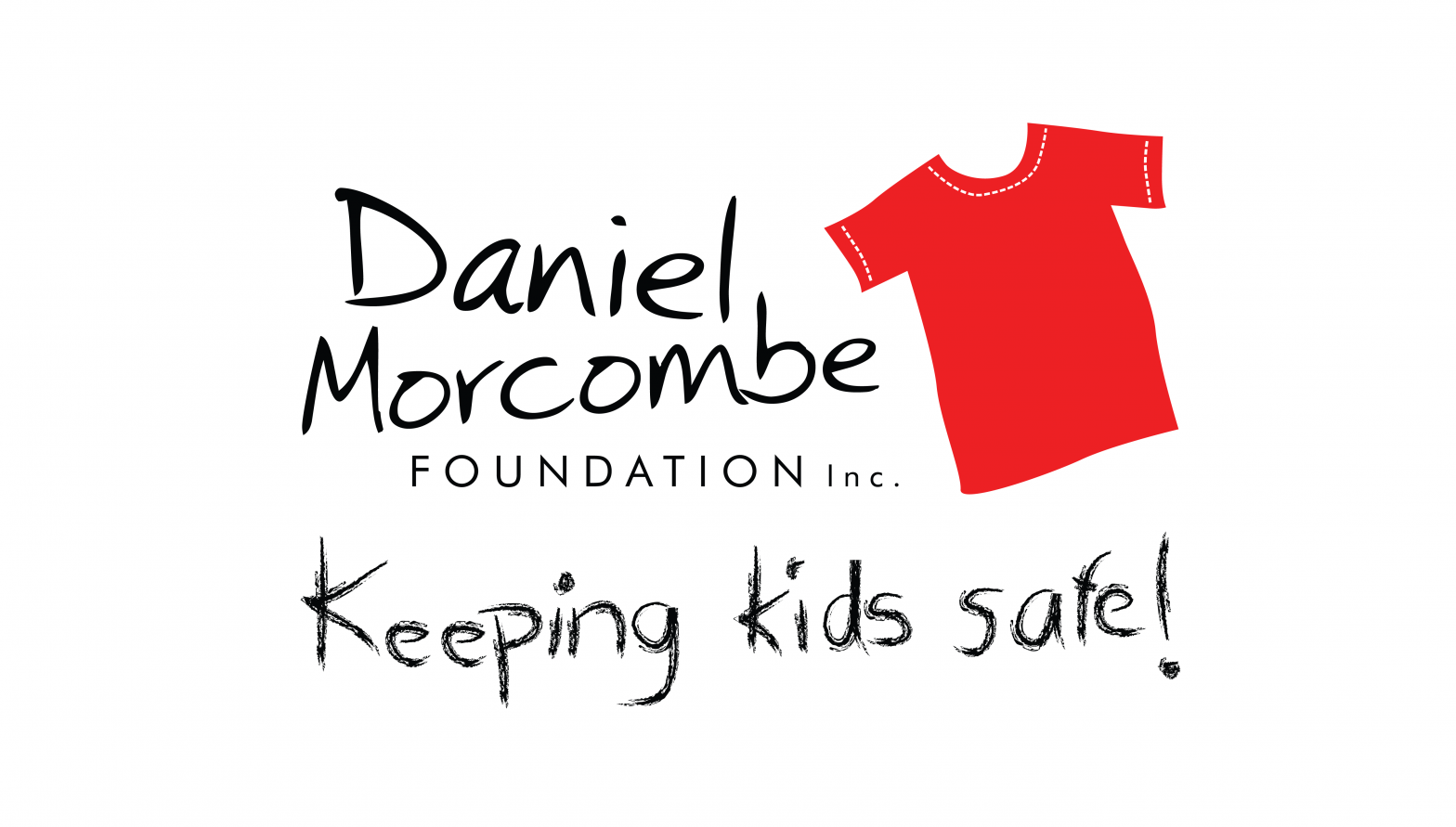
Harmful sexual behaviours
Parents and carers play a crucial role in keeping children and young people safe from harm and abuse. This factsheet has been specifically designed to provide parents and carers with the necessary information and tools to help them to identify and respond to harmful sexual behaviours.
factsheets

Safety Planning
Tailoring safety plans to meet the needs of each family’s unique situation is vital to ensuring that children remain safe from harm.
factsheets

Video calling
Video calling is fast becoming a popular part of our everyday lives. Apps such as Facetime, Whatsapp, Messenger and Skype are now being used for a range of purposes from socialising with friends and family to engaging in extracurricular activities and online learning for school.
factsheets

Responding to a Disclosure of Abuse
For most children, discussing abuse is extremely challenging and emotionally stressful. They may suffer a high level of anxiety and distress from fear of repercussions.
factsheets

Positive coping strategies
Moments of crisis and turmoil can lead children and young people to experience intense feelings that can be emotionally overwhelming and scary.
factsheets

Communication during a crisis
How we communicate with children and young people during a time of crisis can directly influence these outcomes.
factsheets / activities

Promoting self-care during a crisis
During times of crisis, children and young people will normally look to the adults in their life as role models for how to cope and keep themselves safe. If adults are modelling positive behaviour strategies for dealing with crisis and stress, children are more likely to follow suit.
factsheets

Cyberbullying
Internet access is a regular part of life for many children and young people around the world. It is the responsibility of adults to keep children safe, this includes helping them to develop cyber safety skills. Touchscreen technologies allow children to access the internet quickly and easily but often they do not understand the complexity of their actions online.
factsheets

Cybersafety
The internet can be a wonderful tool for children to learn, communicate with others and play games, but this isn’t without risks. Children are accessing technology and the internet at a younger age than ever before. It’s never too early to start chatting to your child about how to stay safe online.
factsheets

Talking personal safety
It is the responsibility of adults to keep children safe, this includes helping them develop personal safety skills. It is not about scaring or frightening children but increasing communication and learning new skills.
factsheets

Lost, missing or abducted?
There are about 38,000 missing person reports made to police every year in Australia. Young people between the ages of 13 -17 are the most likely group to be reported missing, making up about 50% of all missing person reports.
factsheets

I am concerned about a child
If you have concerns about a child’s safety it can be difficult to know what to do. Most children and young people live in safe and supportive environments however some will sadly experience child abuse.
factsheets

Child sexual abuse
Sexual abuse of children is against the law. Child sexual abuse is when an adult, another child or adolescent uses their power to involve a child in sexual activity. Sexual activity includes sexual intercourse and a range of sexual behaviours that can be physical, verbal or emotional.
videos
From your toes to your nose
Early Childhood
Sing along to this short, fun song that teaches young children that their body belongs to them.
activities
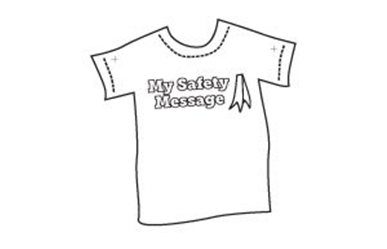
Bunting flags
Write or draw your own safety messages, cut out and display at home or school.
activities
2020 - Upper Primary
Our upper primary lesson will focus on recognising safe and unsafe situations in the real and online world, for children aged 8 to 12.
lessons / activities
2020 - Early Years
For children aged 4 to 7, the early years lesson focuses on safe and unsafe secrets and surprises.
videos
Safe Bedrooms
Television commercial
factsheets / links

How do I report online grooming?
videos
It's your move
videos
Check Mate
factsheets / activities

Guide to The Boomer Challenge
factsheets

How to create a Family Technology Agreement
factsheets

Understanding online grooming
factsheets

How do I react to online grooming?
factsheets

How do I recognise online grooming?
videos / lessons

Lesson 3: Seeking help
videos / lessons

Lesson 2: Understanding bullying
lessons

Lesson 1: Safe relationships
YEAR 7 TO 9
Lesson length: 55min.
videos / lessons / activities

Lesson 4: Responding to bullying
YEAR 3 TO 6
Lesson length: 40min.
videos / lessons

Lesson 3: Understanding bullying
YEAR 3 TO 6
Lesson length: 40min.
videos / lessons

Lesson 2: Reacting
videos / lessons

Lesson 1: Recognising safe
YEAR 3 TO 6
Lesson length: 40min.
videos / lessons / activities

Lesson 3: Responding to unsafe situations
PREP TO YEAR 2
Lesson length: 40min.
factsheets

Signs of child abuse
Child abuse is one of the most under reported crimes in our community. A recent survey conducted by Act for Kids found that a quarter of adults did not know the signs of child abuse and neglect and would need to google how to report suspected abuse.
factsheets

Travel safe
Travelling to school or other familiar places by themselves is an opportunity for children and young people to develop confidence and new skills.
videos / lessons / activities

Lesson 2: Being Safe
PREP TO YEAR 2
Lesson Length: 40min
lessons / activities

Lesson 1: Feeling Safe
PREP TO YEAR 2
Lesson Length: 40min
activities
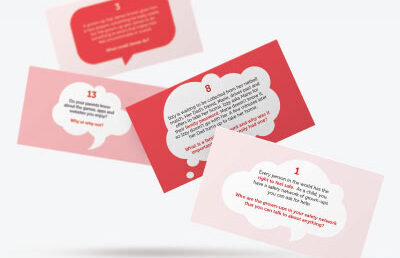
Conversation Cards
Prep to Year 12
Download our Conversation Cards. Choose between the two different conversation cards resources we have available. One for Parents and Carers and the other for Educators.
activities
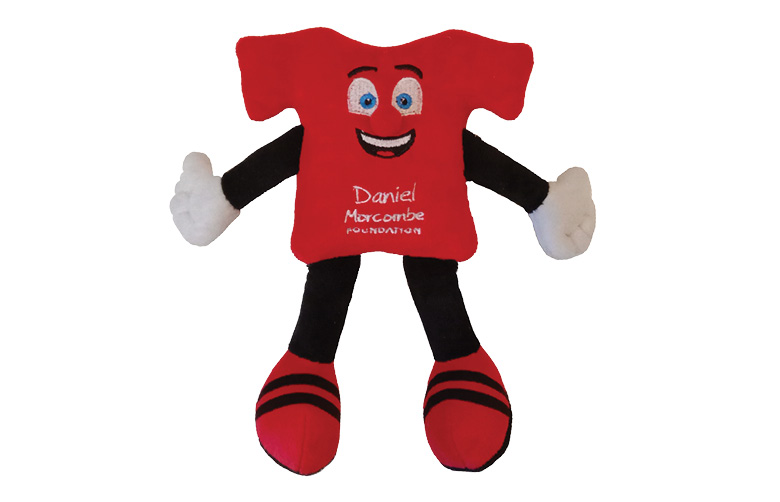
Morky's Safety Mission Board Game
While we take child safety very seriously here at the Daniel Morcombe Foundation, our big, red mascot Morky absolutely loves fun and games!
videos
Red Flags
Video length 5.05min.
lessons / activities / links
2019
Suitable for children aged 9 to 12 years of age. Our ABCSL news style lesson discusses safety issues with young people.
lessons / activities
2018 - Safety school
Suitable for children 3 to 8 years old, ABCSL Safety School teaches key personal safety concepts for early childhood.
lessons / activities
2017
Children aged 8 to 12 years old will learn how to Recognise, React and Report unsafe situations and help promote personal safety.
videos / activities
Safety School Feelings
Early Childhood to Year 2
The lesson has been developed using age appropriate evidence based personal safety education strategies for children between the ages of 3 to 8 years. Video length 4.20min.
activities
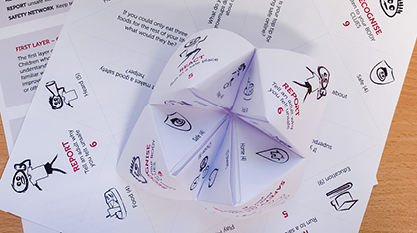
Child Safety Chatterbox
A fun take home game that children can play with their safety network.
factsheets
Educator Guide
Year 10 to 12
factsheets
Educator Guide
Year 3 to 6
factsheets
Educator Guide
Prep to Year 2
factsheets
Educator Guide
Early Childhood
factsheets
